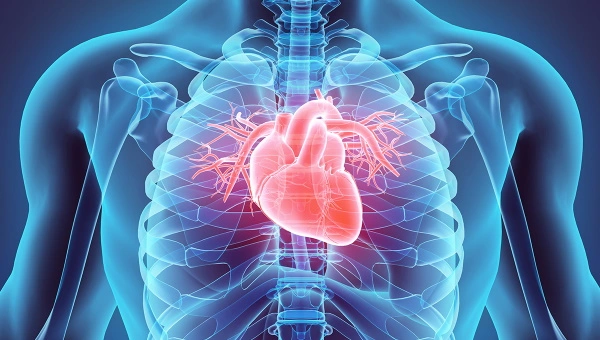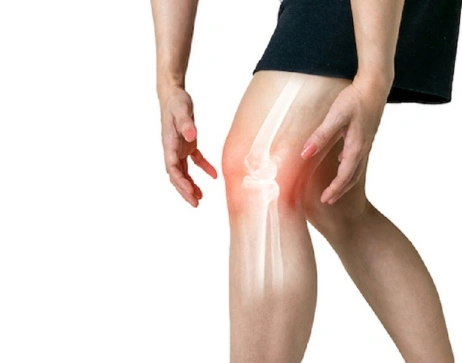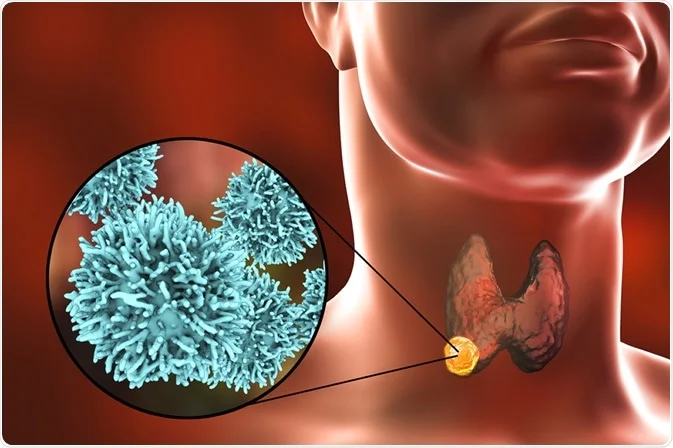Heart disease genetic

If you tested your DNA with a personal genomics service like 23andMe, AncestryDNA, FamilyTreeDNA, MyHeritage or another testing company, you can learn more about your risk factors for hundreds of diseases. By clicking the button above ⬆️, you can upload your raw DNA data file and receive a personalized 250-page health report with research links that is the most comprehensive.
Although genetics can be a major factor in the development of certain heart diseases, individuals with inherited risk factors can decrease their likelihood of developing heart disease by adopting healthy lifestyle habits.
Heart disease encompasses various conditions that can impact an individual's heart or blood vessels, potentially leading to chest pain, stroke, or a heart attack. The likelihood of developing specific heart conditions can be influenced by one's genetics, inherited from their parents.
Inherited conditions arise from a defect or alteration in one or multiple genes. The likelihood of inheriting a defective gene increases if one of your parents possesses it. A few prevalent inherited conditions include:
Diseases of the heart muscle
Heart rhythms that pose a risk to life.
Cholesterol levels are extremely elevated.
Cardiomyopathies can be caused by various gene variations. Specifically, the development of cardiomyopathies has been associated with the following genes:
MYBPC3 can be rewritten as Myosin Binding Protein C, Cardiac.
Trusted Source: TNNT2
TNNI3 from a reliable source.
Familial hypercholesterolemia (FH) is among the associated conditions caused by other genes that may heighten the likelihood of heart disease.
PCSK9 can be rewritten as proprotein convertase subtilisin/kexin type 9.
The likelihood of developing specific heart diseases may be influenced by an individual's genetics. In the event that an individual's family has a history of heart disease, it is advisable to seek medical advice regarding screening alternatives. These may involve gathering data from family members and undergoing genetic testing.
Follow the link of the selected polymorphism to read a brief description of how the selected polymorphism affects Ischemic heart disease and see a list of existing studies.
SNP polymorphisms related to the topic Ischemic heart disease:
| rs4665058 | There is an approximately 4-fold increased risk of sudden cardiac death, presumably from myocardial infarction. |
| rs599839 | The rs599839 polymorphism on chromosome 1p13.3 is associated with premature coronary heart disease. |
| rs556621 | The rs556621 variant on chromosome 6p21.1 is associated with large artery atherosclerotic stroke and ischaemic stroke. |
| rs46522 | The rs46522 polymorphism of the E2Z ubiquitin-conjugating enzyme gene is associated with abnormal metabolic parameters in patients with myocardial infarction. |
| rs10455872 | The rs10455872(G) allele of the LPA gene is associated with high levels of lipoprotein and elevated calcium in the aortic valve, coronary artery disease and coronary heart disease. |
| rs17465637 | SNP of the MIA3 gene associated with increased risk of myocardial infarction with odds ratios of 1.17 (CI: 1.04-1.32) and 1.37 (CI: 1.08-1.74) for carriers. |
| rs3798220 | rs3798220, also known as I4399M or Ile4399Met, is a SNP in the apolipoprotein (A) LPA gene , which has been reported to be associated with elevated plasma lipoprotein levels and increased cardiovascular risk, well-tolerated by low-dose aspirin. |
| rs12425791 | NINJ2 promoter polymorphism causes association with ischaemic stroke. |
| rs383830 | Male-specific association of the T allele of APC rs383830 with risk of coronary heart disease. |
| rs1676232 | LSAMP tumour suppressor gene polymorphisms define a significant risk haplotype for left main artery coronary heart disease. |
| rs964184 | Involved in lipid and vitamin E metabolism. The genotype is a moderate risk factor for reduced vitamin E levels. A low-fat diet is suitable for people with this defect. On a low-fat diet (20% of energy comes from fat), carriers of the risk allele (allele G) had greater reductions in OX and LDL cholesterol levels. These studies showed better lipid profile improvement with long-term low-fat dietary intake in the risk allele G. |
| rs1333042 | Intronic polymorphisms in the CDKN2B-AS1 gene are strongly associated with the risk of myocardial infarction and coronary heart disease. |
| rs2505083 | Increased risk of sudden myocardial infarction and coronary heart disease. |
| rs1024611 | Increased risk of exercise-induced ischaemia. Also increased rate of HIV progression. |
| rs2895811 | HHIPL-1 gene polymorphism (rs2895811) is associated with cardiovascular risk factors and cardiometabolic parameters in patients with myocardial infarction. |
| rs11984041 | HDAC9 variant associated with large vessel ischaemic stroke contributes to carotid atherosclerosis. |
| rs2107595 | HDAC9 Rs2107595 variant alters susceptibility to coronary heart disease and severity of coronary atherosclerosis. |
| rs879324 | Genetic risk factor for ischaemic and haemorrhagic stroke. |
| rs6843082 | Genetic risk factor for ischaemic and haemorrhagic stroke. |
| rs1799983 | Decreases the activity of the NOS3 gene and may reduce the efficiency of the methylation process. Also associated with increased risk markers for cardiovascular problems, such as total cholesterol and low-density lipoprotein (LDL) levels, and with an increased risk of high blood pressure, especially in pregnant women. |
| rs662799 | Apolipoprotein A5 polymorphisms increase 1.4-fold the risk of early heart attack. |
| rs1333048 | ANRIL genetic variation is strongly associated with the risk of myocardial infarction and coronary heart disease. |
| rs3135506 | A variant of the apolipoprotein A5 gene affects lipids, lipoproteins and is associated with coronary heart disease. |
| rs3782218 | A single nucleotide polymorphism of nitric oxide synthase (NOS) is associated with coronary heart disease. |
| rs1412444 | A single nucleotide polymorphism in the LIPA (lysosomal acidic lipase A) gene is associated with predisposition to premature coronary heart disease. |
| rs646776 | A new locus of coronary atherosclerosis and associations with myocardial infarction in coronary atherosclerosis. |
| rs671 | A mutation in the mitochondrial aldehyde dehydrogenase (ALDH2) gene increases acute alcohol sensitivity, alcohol dependence and hangover susceptibility. |
| rs10757274 | A genetic variant on chromosome 9p21 is the strongest genetic predictor of early myocardial infarction (heart attack) found so far. SNPs in this region are also associated with an increased risk of stroke, abdominal aortic aneurysm (AAA) and intracranial aneurysm. |
| rs1842896 | |
| rs12740374 | |
| rs12413409 | |
| rs11671653 | |
| rs2259816 | |
| rs7203193 | |
| rs6504218 | |
| rs11669133 | |
| rs12200560 | |
| rs9546711 | |
| rs1994016 | |
| rs3729639 | |
| rs3127599 | |
| rs7767084 | |
| rs1746048 | |
| rs9818870 | |
| rs12526453 | |
| rs6601299 | |
| rs7569328 | |
| rs974819 | |
| rs11650066 | |
| rs9268402 | |
| rs4773144 | |
| rs1231206 | |
| rs12936587 | |
| rs7697839 | |
| rs2515629 | |
| rs514659 | |
| rs10933436 | |
| rs17114046 | |
| rs6905288 | |
| rs1333040 | |
| rs10757278 | |
| rs2383207 | |
| rs7025486 | |
| rs4977574 | |
| rs1333049 | |
| rs2383206 | |
| rs11206510 | |
| rs9349379 | |
| rs16851055 | |
| rs13407662 | |
| rs2306374 | |
| rs7586970 | |
| rs11066015 | |
| rs8055236 | |
| rs10755578 | |
| rs675026 | |
| rs7136259 | |
| rs10953541 | |
| rs8060686 | |
| rs11752643 | |
| rs2123536 | |
| rs4743150 | |
| rs9982601 | |
| rs12190287 | |
| rs11556924 | |
| rs1165669 | |
| rs2472299 | |
| rs3869109 | |
| rs17114036 | |
| rs1263173 | |
| rs2346177 | |
| rs708272 | |
| rs6882776 | |
| rs28936670 | |
| rs72554028 | |
| rs703752 | |
| rs1063192 | |
| rs2811712 | |
| rs2857657 | |
| rs10116277 | |
| rs5443 | |
| rs6922269 | |
| rs501120 | |
| rs20455 | |
| rs7250581 | |
| rs688034 | |
| rs2943634 | |
| rs17228212 | |
| rs2713604 | |
| rs3803 | |
| rs1800787 | |
| rs4404477 | |
| rs2331291 | |
| rs3918242 | |
| rs2238151 | |
| rs579459 | |
| rs886126 | |
| rs17672135 | |
| rs11066280 | |
| rs6725887 | |
| rs7808424 | |
About The Author
Li DaliLi Dali, a National Foundation for Outstanding Youth Fund recipient, is a researcher at the School of Life Sciences in East China Normal University. He earned his PhD in genetics from Hunan Normal University in 2007 and conducted collaborative research at Texas A&M University during his doctoral studies. Li Dali and his team have optimized and innovated gene editing technology, leading to the establishment of a world-class system for constructing gene editing disease models.


